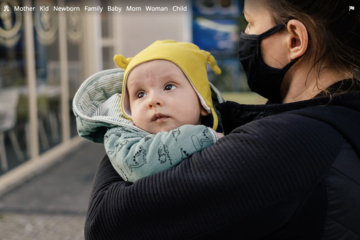Browse
Health And Nutrition
isotope labeling agents
Permanently positively charged stable isotope labeling agents and its application
in the accurate quantitation of alkylphenols
migrated from plastics to edible oils
Chong Ma, Shijuan Zhang *, Xia Wu, Jinmao You **
Shandong Province Key Laboratory of Life
-
Organic Analysis, key Laboratory of
Pharmaceutical Intermediates and Analysis of Natural Medicine, Qufu Normal
University, Qufu
, PR China
By:
Ameliya
Wednesday, May 12, 2021
CULTURE AND SOCIETY
+2

Leave a comment
Permanently positively charged stable isotope labeling
Permanently positively charged stable isotope labeling
Permanently positively charged stable isotope labeling agents and its application
in the accurate quantitation of alkylphenols
migrated from plastics to edible oils
Chong Ma, Shijuan Zhang *, Xia Wu, Jinmao You **
Shandong Province Key Laboratory of Life
-
Organic Analysis, key Laboratory of
Pharmaceutical Intermediates and Analysis of Natural Medicine, Qufu Normal
University, Qufu
, PR China
By:
Ameliya
Wednesday, May 12, 2021
CULTURE AND SOCIETY
+3

Leave a comment
venture capital :
A new permanently positively charged stable isotope labeling (SIL) agent pair, 4-(((2,5-dioxopyrrolidin-1-yl)oxy)carbonyl)-N,N,N-trimethylbenzenaminium iodide(DPTBA) and its deuterated counterpart d3-DPTBA,
By:
Ameliya
Wednesday, May 12, 2021
AGRI-FOOD SYSTEMS
+6
Leave a comment
venture capital :
A new permanently positively charged stable isotope labeling (SIL) agent pair, 4-(((2,5-dioxopyrrolidin-1-yl)oxy)carbonyl)-N,N,N-trimethylbenzenaminium iodide(DPTBA) and its deuterated counterpart d3-DPTBA,
By:
Ameliya
Wednesday, May 12, 2021
AGRI-FOOD SYSTEMS
+5
Leave a comment
Child marriage
Child marriage is a marriage or similar union, formal or informal, between an adult and a child or youth under a certain age, typically age eighteen. Child marriage violates the rights of children and has widespread and long term consequences for child brides and grooms. It affects both boys and girls, but it is more common among girls.The legally prescribed marriageable age in some jurisdictions is below 18 years, especially in the case of girls.[citation needed] Even where the age is set at 18 years, cultural traditions may take priority over legislative law and many jurisdictions permit earlier marriage with parental consent or in special circumstances, such as teenage pregnancy. Comprehensive sex education can help to prevent child marriage.[ Child marriage is related to child betrothal, and it includes civil cohabitation and court approved early marriages after teenage pregnancy.[7][8] In many cases, only one marriage-partner is a child, usually the female. Causes of child marriages include poverty, bride price, dowry, cultural traditions, laws that allow child marriages, religious and social pressures, regional customs, fear of remaining unmarried, illiteracy, and perceived inability of women to work for money.[2][9]
By:
Vijaya Super admin
Wednesday, May 12, 2021
CULTURE AND SOCIETY
+2

Leave a comment
Politics
Politics is the set of activities that are associated with the governance of a country, state or an area. It involves making decisions that apply to groups of members.
It refers to achieving and exercising positions of governance—organized control over a human community, particularly a state.The academic study focusing on just politics, which is therefore more targeted than general political science, is sometimes referred to as politology (not to be confused with politicology, a synonym for political science).
In modern nation-states, people often form political parties to represent their ideas. Members of a party often agree to take the same position on many issues and agree to support the same changes to law and the same leaders.
By:
Vijaya Super admin
Wednesday, May 12, 2021
AGRI-FOOD SYSTEMS
+3
No Preview Available
Leave a comment
Agri and food Scholar
A new permanently positively charged stable isotope labeling (SIL) agent pair, 4-(((2,5-dioxopyrrolidin-1-yl)oxy)carbonyl)-N,N,N-trimethylbenzenaminium iodide(DPTBA) and its deuterated counterpart d3-DPTBA,
By:
Ameliya
Wednesday, May 12, 2021
CULTURE AND SOCIETY
+2

Leave a comment
venture capital
A new permanently positively charged stable isotope labeling (SIL) agent pair, 4-(((2,5-dioxopyrrolidin-1-yl)oxy)carbonyl)-N,N,N-trimethylbenzenaminium iodide(DPTBA) and its deuterated counterpart d3-DPTBA,
By:
Ameliya
Wednesday, May 12, 2021
CULTURE AND SOCIETY
+3

Leave a comment
Nature
A new permanently positively charged stable isotope labeling (SIL) agent pair, 4-(((2,5-dioxopyrrolidin-1-yl)oxy)carbonyl)-N,N,N-trimethylbenzenaminium iodide(DPTBA) and its deuterated counterpart d3-DPTBA,
By:
Ameliya
Wednesday, May 12, 2021
HEALTH AND NUTRITION
+2
Leave a comment
venture capital :
A new permanently positively charged stable isotope labeling (SIL) agent pair, 4-(((2,5-dioxopyrrolidin-1-yl)oxy)carbonyl)-N,N,N-trimethylbenzenaminium iodide(DPTBA) and its deuterated counterpart d3-DPTBA,
By:
Ameliya
Wednesday, May 12, 2021
HEALTH AND NUTRITION
+2

Leave a comment
chemistry grants
Abstract
A new permanently positively charged stable isotope labeling (SIL) agent pair, 4-(((2,5-dioxopyrrolidin-1-yl)oxy)carbonyl)-N,N,N-trimethylbenzenaminium iodide(DPTBA) and its deuterated counterpart d3-DPTBA, was designed and synthesized. The SIL agents were applied to the liquid chromatography–tandem mass spectrometry analysis of alkylphenols. Light labeled standards and heavy labeled samples were mixed and analyzed simultaneously. Matrix effect which mainly occurred during the ionization process was minimized because of the identical ionization processes between samples and standards. Meanwhile, derivatization made alkylphenols be positively charged, and thus the sensitivity was enhanced. The limits of detection were in the range of 1.5–1.8 ng/L, and the limits of quantitation were in the range of 4.8–6.1 ng/L. The developed method was applied to analyze alkylphenols migrated from plastics to edible oils. The recoveries for all analytes were in the range of 88.6–95.3%, while the matrix effects for all analytes were in the range of 96.2–99.6%.
By:
Ameliya
Wednesday, May 12, 2021
HEALTH AND NUTRITION
+2

Leave a comment
Nature
The onion, known as the bulb onion or common onion, is not only a key ingredient in many tasty and healthy vegetarian meals but also many traditional medicines. Nine new flavonoids [cepaflavas A, B (5, 6), cepadials A–D (7–9 and 14), and cepabiflas A–C (10–12)] and six known compounds (1–4, 13, 15) were obtained from the outer skins of Allium cepa L. Among them, compounds 5, 6, and 9 might be artificial products formed during extraction and isolation. New compounds were structurally elucidated using various spectroscopy/spectrometry techniques, including NMR and HRMS, and computational methods. T
By:
Ameliya
Wednesday, May 12, 2021
AGRI-FOOD SYSTEMS
+6


Leave a comment